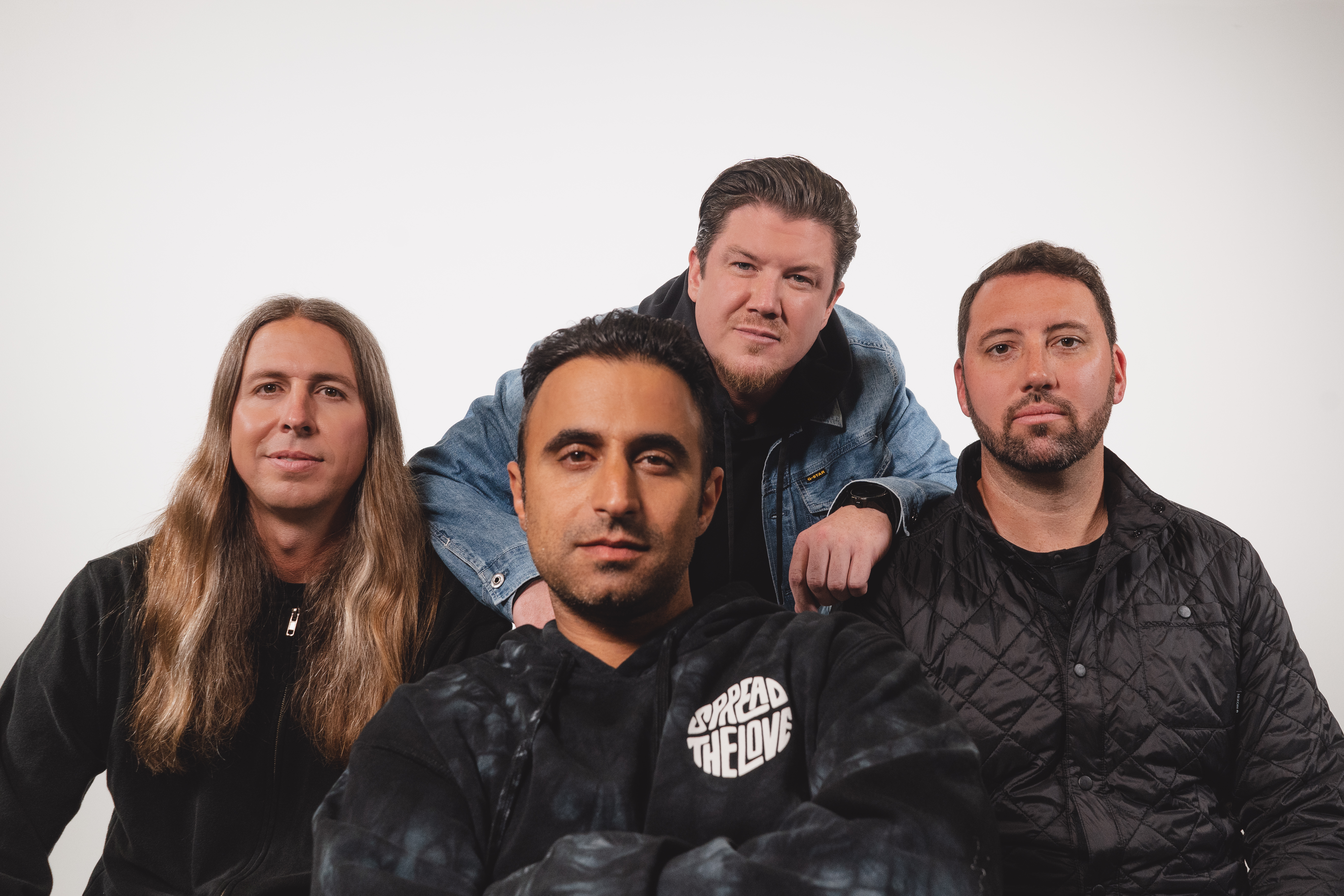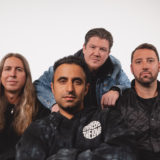

In the world of reggae-rock, Rebelution remains one of the staples that have held together the scene for the last decade-and-a-half. Along with peers like Pepper and Iration, the four UC Santa Barbara alumni have churned out one album after another of reggae Billboard chart-topping hits. Ever since bursting into the scene with 2007’s self-produced Courage to Grow, frontman Eric Rachmany and his band have drawn crowds all over the world — performing on the biggest of stages and even earning a long-overdue Grammy nomination for 2016’s Falling Into Place.
Now, Rebelution is back with their seventh full-length album, In The Moment, this Friday (June 18 via Easy Star Records). But for those expecting nothing but classic reggae jams, this isn’t quite Bright Side of Life part two. In The Moment gets as experimental and rock-oriented as the band has ever been, but still manages to balance it with the smooth reggae that people have come to expect over the years. It’s the kind of project that a younger band might have their doubts about, but Rachmany and crew know they’re in a position to experiment a bit outside of their wheelhouse.
SPIN spoke with Rachmany to get his take on the new album, the band’s trajectory, and much more.
SPIN: It seems like Rebelution has really grown both in the reggae and rock scenes in recent years, and In The Moment really speaks to that. How intentional was some of that exploration into new territory?
Eric Rachmany: I mean, it kind of comes down to what even is our music? Is it reggae? Is it rock? Maybe it’s both. It’s hard to describe the music, so I feel like we’re kind of in our own little zone here. To say the truth, I’m just kind of riding the wave. Over time, I think I’ve learned how to be a better performer and a better musician, and I don’t think there are a lot of other bands that we look up to for guidance. We’ve looked up to the reggae legends for our reggae influence — and even modern reggae artists as well — but we mix it up so much because we just want to make music that feels good to us. We’re not trying to reach a certain demographic or a certain sound because we feel like we need to fit that hole. We’re just making music that we really like.
I know a lot of the album was finished during the pandemic, but my understanding is that some of the tracks are much older. How did that come about?
Yeah. A lot of this material was written over the last year-and-a-half, but there were a couple songs that we brought back from old Rebelution recording sessions. There’s one song on there that got started 20 years ago with a guitar but was never completed, and now we’re finally able to put it on the album. It’s really cool how some old recordings that were never released made the cut this time. One of our oldest songs is now one of our newest songs.
You seem to have figured out a certain formula for putting out a new album every 2-3 years that will easily top the reggae charts and just genuinely delight fans new and old, so what’s the secret to that consistency?
I think it’s all about just being comfortable. We’ve been a band for 17 years now, and it’s been a slow and steady journey. It just keeps on getting bigger and bigger slowly but surely. There was no time in the course of this band where we felt like the band jumped up to some overnight success kind of story. When people come to our shows, they’re a fan of singing along to pretty much every song there is. We definitely have a few songs that are like the Rebelution classics that people know the words to, but for the most part, there isn’t one single that everybody is expecting to hear at our show. So to answer the question, I think just the lack of pressure has been really nice. It allows us to try different things. Just not having that pressure there makes me free to write what I want to write. It makes me free to be honest with the music. I think that’s huge. I’m just writing and recording songs that people relate to. I also think that’s why people are going to like this album.
How does it feel to be putting out an album right as tours are starting to come back and the world seems to be opening up again after the pandemic?
Well, the timing is pretty crazy because this album has a lot to do with the concept of time, so the fact that we’re able to release an album and come back and play shows just makes it that much trickier. We named the album In The Moment to remind us to just be present in whatever moment because you never know what life is going to bring. Nobody expected this, so when I get back on that stage, it’s going to be a reminder to just soak it in for every moment that you’re alive. We’ll be soaking in that moment of being onstage and embracing the concert with the fans and the relationship we have with the listeners. It’s going to be an incredible feeling. The first shows might be a little rough, but give us just a couple of shows and we’ll be back to our normal selves. We’re definitely our biggest critic when we play live, but we’ve been playing for so long together that it’s not going to take long for us to click.
Completely unrelated to In The Moment, but after the last album, you guys put out a vinyl box set spanning pretty much your entire careers. What was that like to see everything compiled in one place?
I think each album brings us back to a certain time in our lives. It brings us back to memories of performing live, where we recorded, what style of clothing we were wearing. So I think when the listeners hear an album or a song, it brings back memories. Art, in general, is just a great indicator of time, and it brings us back to certain moments — both good and sad. It brings up all sorts of emotions. So when I look at that box — which I love the way it came out, by the way — it just brings me back to where we were back in 2006, 2008, or 2010. It’s cool because it’s like a story in itself just looking at the covers and the albums to remember where I was as a person, as a writer, and as a performer. It’s really cool to see time through the albums.


Leave a comment